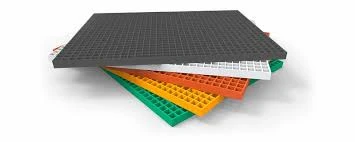
-
 Afrikaans
Afrikaans -
 Albanian
Albanian -
 Amharic
Amharic -
 Arabic
Arabic -
 Armenian
Armenian -
 Azerbaijani
Azerbaijani -
 Basque
Basque -
 Belarusian
Belarusian -
 Bengali
Bengali -
 Bosnian
Bosnian -
 Bulgarian
Bulgarian -
 Catalan
Catalan -
 Cebuano
Cebuano -
 China
China -
 China (Taiwan)
China (Taiwan) -
 Corsican
Corsican -
 Croatian
Croatian -
 Czech
Czech -
 Danish
Danish -
 Dutch
Dutch -
 English
English -
 Esperanto
Esperanto -
 Estonian
Estonian -
 Finnish
Finnish -
 French
French -
 Frisian
Frisian -
 Galician
Galician -
 Georgian
Georgian -
 German
German -
 Greek
Greek -
 Gujarati
Gujarati -
 Haitian Creole
Haitian Creole -
 hausa
hausa -
 hawaiian
hawaiian -
 Hebrew
Hebrew -
 Hindi
Hindi -
 Miao
Miao -
 Hungarian
Hungarian -
 Icelandic
Icelandic -
 igbo
igbo -
 Indonesian
Indonesian -
 irish
irish -
 Italian
Italian -
 Japanese
Japanese -
 Javanese
Javanese -
 Kannada
Kannada -
 kazakh
kazakh -
 Khmer
Khmer -
 Rwandese
Rwandese -
 Korean
Korean -
 Kurdish
Kurdish -
 Kyrgyz
Kyrgyz -
 Lao
Lao -
 Latin
Latin -
 Latvian
Latvian -
 Lithuanian
Lithuanian -
 Luxembourgish
Luxembourgish -
 Macedonian
Macedonian -
 Malgashi
Malgashi -
 Malay
Malay -
 Malayalam
Malayalam -
 Maltese
Maltese -
 Maori
Maori -
 Marathi
Marathi -
 Mongolian
Mongolian -
 Myanmar
Myanmar -
 Nepali
Nepali -
 Norwegian
Norwegian -
 Norwegian
Norwegian -
 Occitan
Occitan -
 Pashto
Pashto -
 Persian
Persian -
 Polish
Polish -
 Portuguese
Portuguese -
 Punjabi
Punjabi -
 Romanian
Romanian -
 Russian
Russian -
 Samoan
Samoan -
 Scottish Gaelic
Scottish Gaelic -
 Serbian
Serbian -
 Sesotho
Sesotho -
 Shona
Shona -
 Sindhi
Sindhi -
 Sinhala
Sinhala -
 Slovak
Slovak -
 Slovenian
Slovenian -
 Somali
Somali -
 Spanish
Spanish -
 Sundanese
Sundanese -
 Swahili
Swahili -
 Swedish
Swedish -
 Tagalog
Tagalog -
 Tajik
Tajik -
 Tamil
Tamil -
 Tatar
Tatar -
 Telugu
Telugu -
 Thai
Thai -
 Turkish
Turkish -
 Turkmen
Turkmen -
 Ukrainian
Ukrainian -
 Urdu
Urdu -
 Uighur
Uighur -
 Uzbek
Uzbek -
 Vietnamese
Vietnamese -
 Welsh
Welsh -
 Bantu
Bantu -
 Yiddish
Yiddish -
 Yoruba
Yoruba -
 Zulu
Zulu
Innovative Applications and Benefits of Fiberglass Shells in Modern Construction and Design
The Versatility of Fiberglass Shells in Modern Applications
Fiberglass shells have emerged as a groundbreaking innovation in various industries, thanks to their unique properties that combine strength, durability, and versatility. Composed primarily of glass fibers and resin, these shells offer an array of benefits that make them an ideal choice for many applications, from marine vessels to construction and beyond.
One of the most significant advantages of fiberglass shells is their lightweight nature. Compared to traditional materials such as steel and wood, fiberglass is much lighter, which not only enhances the fuel efficiency of vehicles and vessels but also simplifies handling and installation processes. For instance, in the marine industry, fiberglass hulls are prevalent because they allow for faster speeds and improved fuel efficiency, making them favorite choices for both recreational boats and commercial vessels.
Durability is another critical aspect of fiberglass shells. They exhibit exceptional resistance to corrosion, moisture, and chemicals, which makes them suitable for use in a variety of challenging environments. Unlike metals that can rust or decay over time, fiberglass maintains its structural integrity even when exposed to harsh weather conditions, saltwater, and various pollutants. This durability leads to lower maintenance costs and a longer lifespan, making fiberglass shells an economically viable choice in many sectors.
fiberglass shell

The versatility of fiberglass design also cannot be overlooked. The material can be molded into virtually any shape, allowing for creative and innovative designs tailored to specific requirements. This flexibility is particularly valuable in the construction industry, where fiberglass can be used for architectural elements, roofing systems, and decorative façades. The ease of customization means that builders can achieve complex designs without compromising on strength or durability.
In addition to its structural applications, fiberglass shells are increasingly utilized in safety equipment and protective gear. Helmets, body armor, and other protective devices made with fiberglass offer excellent resistance to impact and abrasion, ensuring safety while remaining lightweight and comfortable. This application is particularly crucial in industries such as construction, firefighting, and law enforcement, where reliable protection is paramount.
Furthermore, fiberglass is an environmentally friendly option compared to other synthetic materials. The production processes for fiberglass have become more energy-efficient, and its longevity contributes to less waste in landfills over time. Additionally, advancements in recycling technologies for fiberglass composites promise an even more sustainable future for this material.
In conclusion, fiberglass shells epitomize the intersection of innovation and practicality. Their lightweight nature, durability, design flexibility, and eco-friendliness make them indispensable across various industries. As technology continues to advance, we can expect to see even more creative uses for fiberglass shells, solidifying their place as a cornerstone material for modern applications.
Latest news
-
Exploring the Benefits of Top Hammer Drifter Rods for Enhanced Drilling PerformanceNewsJun.10,2025
-
High-Precision Fiberglass Winding Machine for GRP/FRP Pipe Production – Reliable & Efficient SolutionsNewsJun.10,2025
-
FRP Pipes & Fittings for Shipbuilding - Corrosion-Resistant & LightweightNewsJun.09,2025
-
Premium FRP Flooring Solutions Durable & Slip-ResistantNewsJun.09,2025
-
Premium Fiberglass Rectangular Tanks Durable & Lightweight SolutionNewsJun.09,2025
-
Tapered Drill String Design Guide Durable Performance & UsesNewsJun.09,2025









